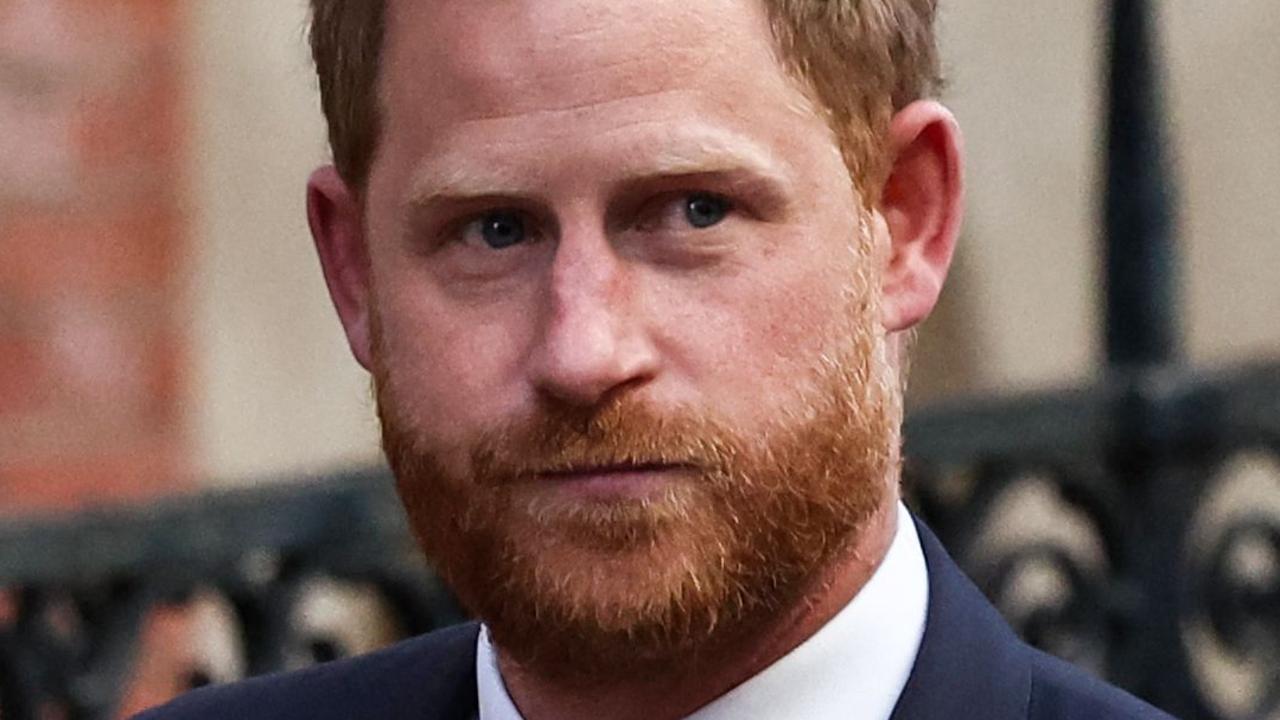King Charles pushes on with green agenda and his secret passion revealed
Some hoped King Charles would give up his green activism upon his ascension to the throne. But that hasn’t exactly happened.

Royals
Don't miss out on the headlines from Royals. Followed categories will be added to My News.
Some predicted he would be the ‘Climate King’.
Others said he’d have to curtail his activism upon his ascension to the throne.
But seven months into his reign, it appears King Charles is attempting to walk a middle line, finding ways to focus attention on the environmental causes he has championed for more than 50 years, without antagonising his critics too much.
It’s a tricky task. Since the emergence of the so-called “spider memos” – the dozens of letters the then Prince of Wales scrawled in his distinctive spidery handwriting to British MPs in the early 2000s, pushing his position on a range of subjects – his doubters have raised concern he would be a meddling monarch.
A 2017 Prospect Magazine article said high-ranking Westminster mandarins were privately concerned Charles would be an “interfering” and “opinionated” king, obsessed with “wanting to make a difference”; the antithesis of his mother Queen Elizabeth, who was hailed as a model of impartiality.
The concern was so pronounced Charles addressed it in the first televised speech he gave after the death of his mother.
“It will no longer be possible for me to give so much of my time and energies to the charities and issues for which I care so deeply,” he said at the time. “But I know this important work will go on in the trusted hands of others.”
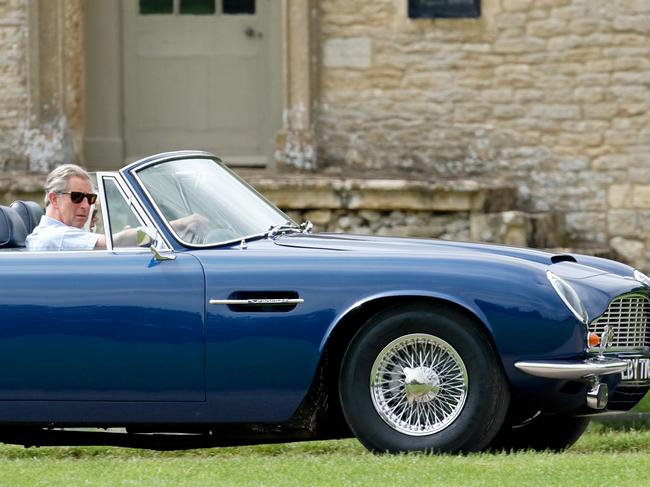
But as his coronation draws near, it is clear King Charles has not and will not drop his green causes altogether.
In November, he hosted drinks at Buckingham Palace for high-profile delegates to the COP27 summit, including British Prime Minister Rishi Sunak and the White House envoy on climate change, John Kerry. Commentators noted it was a canny way for the King to bring a bit of COP27 to Britain, after it had reportedly been arranged with the former PM Liz Truss that he would not be attending the event in person.

The green tinge to Charles’s reign has continued since then.
In February, he met with Dr Sultan Al Jaber, the UAE’s president-designate for this year’s COP28 conference in Dubai.
And in March, while on an official visit to Germany, Charles participated in a sustainability forum which canvassed matters such as hydrogen production, renewable energy, and the decarbonisation of industry. He also met with the leader of the German Greens.
A palace spokesperson said the purpose of the German tour was to “show the many ways our countries are working in partnership” – with the joint fight against climate change at the top of the list.
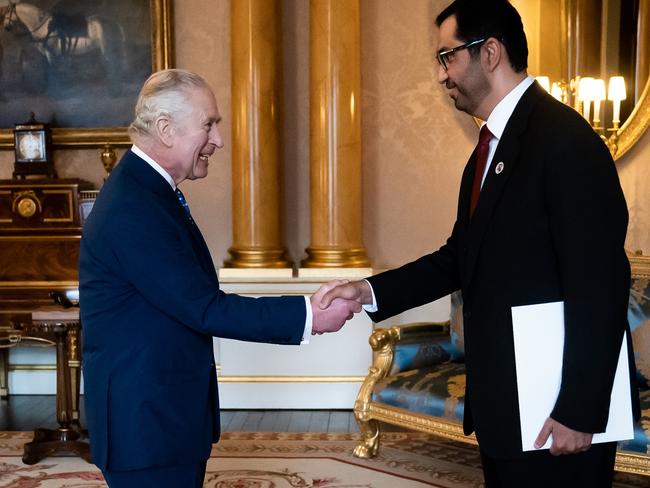
A tour to France, which had to be postponed at the eleventh hour because of widespread protests, was due to include a visit to an organic vineyard in Bordeaux – which would have once again enabled the King to highlight a green cause close to his heart.
All of this should not come as a surprise, given Charles’s longstanding environmentalism, a set of values influenced from birth by his father Prince Philip, and later by the naturalist Sir David Attenborough (they first met when Charles was 10), and the South African writer and conservationist Laurens Van der Post.
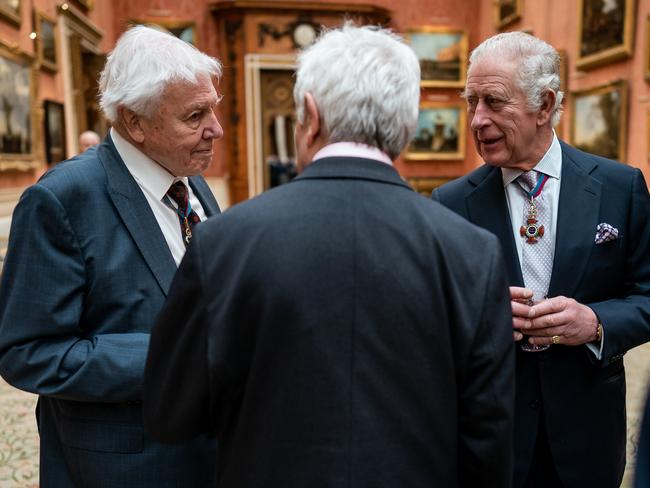
Charles first spoke up on conservation matters in 1970, when he gave a speech decrying air pollution, overpopulation and plastic waste.
And he’s been pushing the green barrow ever since, driving new sustainability initiatives, installing solar panels at royal properties, and speaking up about conservation issues.
In interviews before he became King, Charles said he knew he had a reputation for being “potty”, what with his suggestion that people should speak to their plants.
But as he settles into his new role, he’s been pretty much vindicated. Studies show talking to your plants helps them grow faster; and the increasing incidence of extreme weather events shows his longstanding warnings on climate change were prescient.

Critics say his environmentalism is patchy (he’s a supporter of hunting, and his love of private jets means his personal carbon footprint is massive). But others say his personal influence has at times made a pronounced difference on environmental matters.
His advocacy prior to the COP26 climate conference in Glasgow in 2021 was considered a factor in Scott Morrison’s decision to attend, after the Australian prime minister was reported to be wavering.
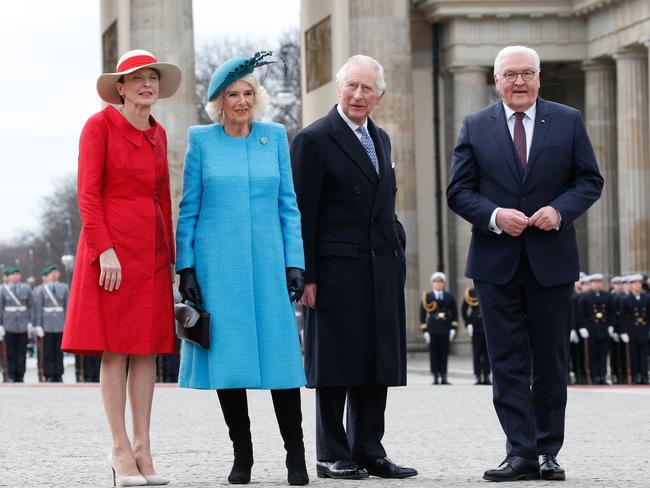
According to Paul Sheridan from the Australian Conservation Foundation, Charles “has proven himself to be a catalyst for change,” with his leadership on environmental matters “acting as a form of peer to peer pressure on others”.
“He’s been very outspoken, and consistently so. With climate change, there have been particular moments when he has spoken out about leadership, and in doing that, he’s provided that leadership,” he said.
Mr Sheridan said it was not clear how Charles will treat environmental causes going forward, but it was the ACF’s hope “that he continues to take the leadership positions he has been willing to take over many years”.
German President Frank-Walter Steinmeier struck a similar line when welcoming King Charles to Berlin on his recent trip (his first as monarch).
“We are starting this state visit very consciously with a topic that is decisive for our future on this planet,” Steinmeier told Charles.
“We … benefit from your conviction today, your Majesty”, he said.
THE KING’S OTHER PASSIONS
Conservation and climate issues are not King Charles’s only interests. Here are some of his others.
Architecture and planning
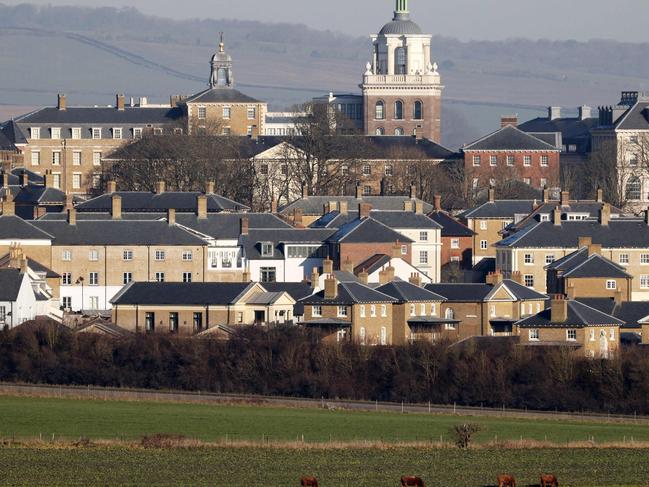
In a line from the 2006 film The Queen, Helen Mirren’s title character reflects wistfully on the “sheer joy of being partial” – a privilege which she, as sovereign, is denied. She was talking about politics, but Charles has never held back from expressing his views when it comes to architecture and planning issues. He once likened the design of London’s National Theatre to a nuclear power plant, and another time suggested the German Luftwaffe had caused less damage to the UK capital’s skyline than some modernist architects had managed. Charles has expanded on his views in books and documentaries, and put his ideas into practice with the development of the model town Poundbury on his Duchy of Cornwall estate. While some have praised Poundbury’s integrated planning, critics have dubbed it “soulless”, “authoritarian” and even “grimly cute”.

Jack Russells
Every dog will have its day … and its royal champion, it seems. Queen Elizabeth had her corgis, the exiled Duchess of Sussex has her rescue beagle Guy, and for Charles and Camilla, the pooch of choice is the Jack Russell. Charles owned one of the charismatic small dogs but it died last year; he and Camilla currently have two, named Beth and Bluebell.
Homoeopathy
King Charles has long supported homoeopathic medicines, and remains patron of an organisation called the Faculty of homoeopathy. In one of the “black spider” memos, he called on the British government to reverse spending cuts on homoeopathic remedies – a controversial move given the treatments are not supported by scientific evidence.
Hiking

Like his mother before him, Charles is a big walker. According to an interview Camilla gave BBC Radio in 2020: “He’ll walk and walk and walk. He’s like a mountain goat, he leaves everybody miles behind.” He was also a keen polo player when younger, but hung up his mallet in 2015 after a series of injuries.
Painting
The King has been an avid painter since his schooldays, principally watercolours of landscapes and studies of royal buildings. He once quipped that he chose watercolours as they dry quickly, so he doesn’t keep his security detail waiting too long. Proceeds from occasional sales of his artworks go to charity.
Organic farming
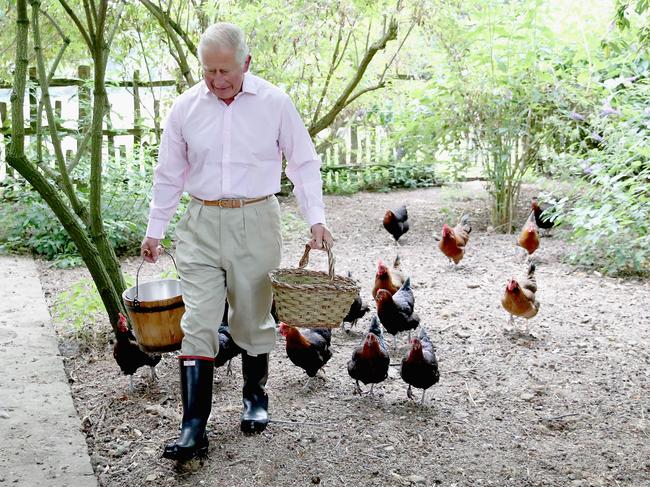
Charles has been espousing the virtues of organic farming for more than 40 years, saying he was motivated by a belief that traditional farming practices were over-reliant on antibiotics. He converted a farm on his Duchy of Cornwall estate to organic methods in 1986; it now supplies ingredients used in the Duchy Organic products sold in the up-market British supermarket chain Waitrose.




